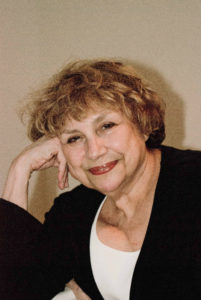Doctor Curmudgeon® Lest We Forget
[AdSense-A]
 By Diane Batshaw Eisman, M.D. FAAP Doctor Eisman, is in Family Practice in Aventura, Florida with her partner, Dr. Eugene Eisman, an internist/cardiologist
By Diane Batshaw Eisman, M.D. FAAP Doctor Eisman, is in Family Practice in Aventura, Florida with her partner, Dr. Eugene Eisman, an internist/cardiologist
Somewhere around 1735, a brave man was born.
Ignored by History, this man, Prince Hall, was an African American and a contemporary of John Adams.
In those formative days of our new nation, John Adams and Prince Hall knew of each other. Hall was probably the first American to apply the phrases of the Declaration of Independence for a political purpose; using those passionate words to raise the cause of emancipation.
A Black man, enslaved by the age of eleven; he was literate, logical and an educator. A Black man, who began a school in his own home to teach Liberal Arts and give a classical education to Black children. A Black man who clearly understood that it was a social contract on which our American Revolution was based; and, intellectually used these truths in the Declaration to be extended to equal rights to people who were enslaved.
Prince Hall wrote eloquently of the harsh treatment and abuse received by Black people. Such bravery in those dark times! He even petitioned the Massachusetts legislature in protest of African American seamen who were sold as slaves.
In June of 1797, Prince Hall spoke of social injustice:
“Patience, I say; for were we not possessed of a great measure of it, we could not bear up under the daily insults we meet with in the streets of Boston…shamefully abused, and that to such a degree, that we may truly be said to carry our lives in our hands, and the arrows of death are flying about our heads..tis not for want of courage in you for they know that they dare not face you man for man, but in a mob.”
Even after serving in the Revolutionary War, Prince Hall found that Blacks were still not granted racial equality.
It was in those days of the formation of our country that Prince Hall exhibited such courage; speaking and writing that Black leaders must be in the foreground in shaping our new country and creating unity.
He was a true community leader and organizer.
Somehow, this revolutionary was able to become a Mason and found African American Freemasonry.
Using his influence as a mason,, he was able to work in his community for the betterment of his country; focusing scrutiny on racism and its impact; laying the groundwork for a civil rights movement, and establishing the very first Boston school for African American children.
And finally in 2008, the Mayor of Cambridge presented a resolution proclaiming that Prince Hall was a ‘founding father.”
In formally adopting this resolution, the Cambridge City Council noted that “the term founding father has also been used to recognize those who challenged principles of democracy, civil rights, and equality during the founding of this nation.”
Finally!
And it only took a little over two hundred years!
Dr. Curmudgeon suggests “Bitter Medicine”, Dr. Eugene Eisman’s story of his experiences–from the humorous to the intense—as a young army doctor serving in the Vietnam War.
Bitter Medicine by Eugene H. Eisman, M.D. –on Amazon
Doctor Curmudgeon® is Diane Batshaw Eisman, M.D., a physician-satirist. This column originally appeared on SERMO, the leading global social network for doctors.
SERMO www.sermo.com “talk real world medicine”
[si-contact-form form=’2′]

